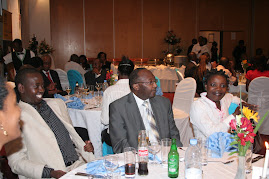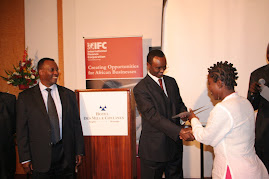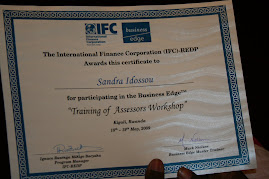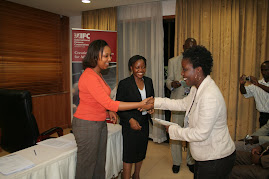

| CUSTOMER CARE: Time should mean money in Rwanda as well | |
| By Sandra idossou | |
As I start writing this article, I know for sure that many will dislike what they are about to read. I’m probably going to shock you but believe me dear readers, this has to come out. I have been in an “Enough is Enough” mood for these past weeks that I simply can’t keep quiet anymore on this particular subject. No matter how sensitive certain issues might seem; we need to talk about them so as to improve on them. I’ll not go by two roads….this ordeal of slow service delivery is just driving me nuts. People are simply to slow. It looks like service many have their whole time in doing certain things that should be done quickly. Just imagine the time one has to spend in queues in most banks here to access one’s money; an average of one hour in most cases; whereas in some parts of the world, these are operations that take less than two minutes. Look at the manner in which the cashiers carry themselves; they walk or sit nonchalantly as if hey are forced to be there. When they finally take your check, it takes them an eternity to serve you. They need to get an authorization from their supervisors who most at times are nowhere to be found. Service providers should understand that we do not come to their companies to watch television. We have our own television sets at home and our reason for coming in there is to be served quickly so that we can attend to other urgent matters. Believe me; putting in a television in your shop doesn’t reduce the amount of wasted time I spend in there. But this issue of speed in service delivery does not only concern the banks. This is a critical one cross sectors; from the private to the public; from big to small organizations. These last few weeks for instance, I wrote to several institutions about a project I’m working n at the moment. There are just few who take time to respond to correspondences. And when I call for an update, people simply do not understand why I have to “hurry” them. And this is after a three weeks’ wait. I think Timeliness in Rwanda is a public matter of urgency. As the world continues to speed up, customers have today less time than ever to deal with slow service providers. They want their service delivery to take the minimum amount of time possible. Customers want service providers they can depend upon; or who simply can deliver when they say they will. Most of us today hate having to wait and we are no more as patient as before. And that is why we want people in the service industry to be fast. We do not appreciate those who drag their feet; who take hours to respond to a quick question simply because they are afraid of taking responsibility. Customers require today that you deal with their demand in a timely fashion manner. As a service provider, be proactive; give to your customers undivided attention and concentration. And when you are walking, show some enthusiasm. Show you are alive. Do not sit in that chair as if you were bored, hungry, tired etc. Remember your non verbal communication sends tones of messages. Service should not stop or slow down because it has rained. Remember that “Time is free, but it’s priceless. You can’t own it, but you can use it. You can’t keep it, but you can spend it. Once you’ve lost it, you can never get it back” says Harvey Mackay; one of America’s most popular and entertaining business and motivational speakers. Timeliness is not a customer satisfaction issue that can be swept under the rug even in Rwanda. I do not agree with people who say that being slow is a Rwandan culture. It is simply an old habit we have got used to and that needs to change today. www.sandra.idossou@sheiconsulting.com The author is a customer service consultant working in Rwanda |






































